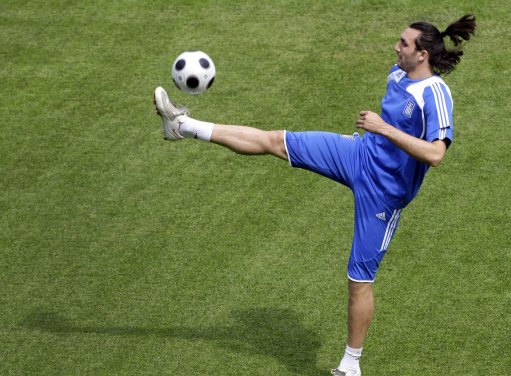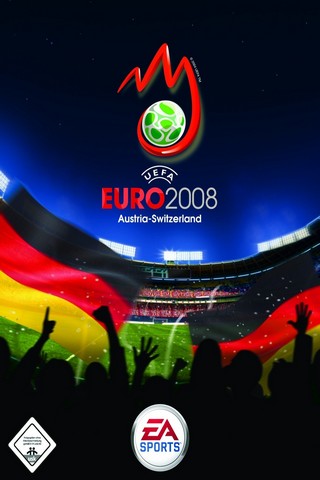

The defender spent the most successful years of his playing career in Croatia with Dinamo Zagreb and retired from international football with exactly 100 caps. Goce Sedloski of North Macedonia (then known as FYR Macedonia) got the only goal in the 71st minute as his side won 1-0 against Estonia in Tallinn in the first EURO 2008 qualifier, on 16 August 2006. Great EURO 2008 saves: Casillas, Buffon and more However, he did not make another appearance at the finals. The low finish was the first of three international goals for the then 24-year-old, who had been the Czech league's 15-goal top scorer in 2007/08 with Baník Ostrava. Substitute Václav Svĕrkoš of the Czech Republic silenced the home crowd at St.Jakob-Park by scoring the first goal of EURO 2008, as Switzerland lost the 7 June opening game. GK: Gianluigi Buffon (Italy) GK: Iker Casillas (Spain) GK: Edwin van der Sar (Netherlands) DF: Bosingwa (Portugal) DF: Philipp Lahm (Germany) DF: Carlos Marchena (Spain) DF: Pepe (Portugal) DF: Carles Puyol (Spain) DF: Yuri Zhirkov (Russia) MF: Hamit Altıntop (Turkey) MF: Luka Modrić (Croatia) MF: Marcos Senna (Spain) MF: Xavi Hernández (Spain) MF: Konstantin Zyryanov (Russia) MF: Michael Ballack (Germany) MF: Cesc Fàbregas (Spain) MF: Andrés Iniesta (Spain) MF: Lukas Podolski (Germany) MF: Wesley Sneijder (Netherlands) FW: Andrei Arshavin (Russia) FW: Roman Pavlyuchenko (Russia) FW: Fernando Torres (Spain) FW: David Villa (Spain) Who scored the first goal at EURO 2008?

Spain's Xavi Hernández was named Player of the Tournament, UEFA technical director Andy Roxburgh commenting: "He was extremely influential in the whole possession, passing, penetrating kind of game that Spain played." UEFA’s 23-man squad of the tournament was: Xavi Hernández was named EURO 2008 Player of the Tournament AFP via Getty Images Who was in the EURO 2008 squad of the tournament? The seven group winners and runners-up qualified for the finals directly. With Austria and Switzerland qualifying automatically as hosts, the remaining 50 UEFA nations entered a qualifying competition which involved seven groups (six made up of seven teams, one made up of eight teams). There were 16 sides at the final tournament, while 50 UEFA member countries participated in qualifying (excluding co-hosts Austria and Switzerland). As a new experiment, teams in Groups A and B were separated from teams in Groups C and D until the final. Staged from 7 June to 29 June, EURO 2008 deployed a similar format to the previous three editions of the tournament, with the top two sides in each of the four four-team groups (three points for a win, one for a draw) moving into the knockout phase. He went on to win the 2010 FIFA World Cup and EURO 2012 with Spain, and was still playing well into his 30s. "I feel responsible for my team-mates and 44 million people," he said. The Real Madrid No1 was still just 27 at the finals but boasted huge experience at the highest levels, including two UEFA Champions League crowns, though he admitted to a few nerves before the final. Iker Casillas became the first goalkeeper to captain a team to the EURO title in 2008.

Iker Casillas captained Spain's EURO-winning side in 2008 Getty Images Who was the winning captain at EURO 2008? He stepped down in the wake of the EURO 2008 victory, proud of a job well done, calling his side "a model for playing football". Famous for his long association with Atlético Madrid – as a player and a coach – he took charge in July 2004 when aged 65 and remoulded the team to chime with the 'tiki-taka' short-passing style then prevalent at Barcelona. Luis Aragonés led Spain to glory at EURO 2008. Who managed the winning team at EURO 2008? Vienna's Ernst-Happel-Stadion was Austria's main venue – and the arena used for the final – with other games held in Innsbruck (Tivoli-Neu), Klagenfurt (Wörthersee Stadion) and Salzburg (Stadion Wals-Siezenheim). Basel's St.Jakob-Park staged the opening game, with Berne (Stade de Suisse), Geneva (Stade de Genève) and Zurich (Letzigrund) also hosting games in Switzerland.

Neighbours Austria and Switzerland co-hosted the 2008 UEFA European Championship, with four venues in each nation.


 0 kommentar(er)
0 kommentar(er)
